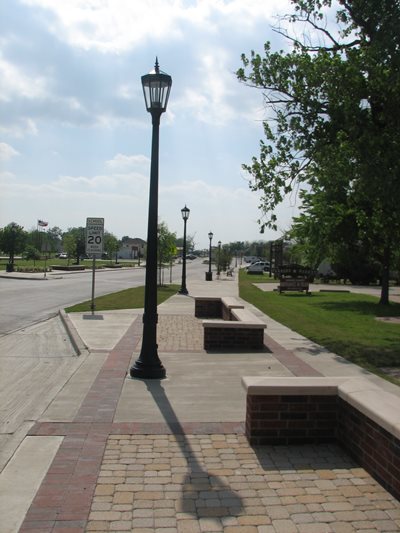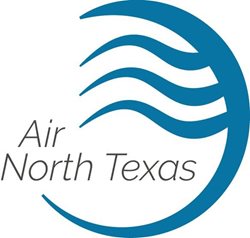Survey: Help Make North Texas Safer for Walking

The Federal Highway Administration has designated Texas and the cities of Dallas and Fort Worth as pedestrian and bicycle focus areas, due to the high ratio of pedestrian-related crashes and fatalities. The Regional Transportation Council has emphasized safety as it develops a transportation system that serves the needs of the growing region.
As the region continues to improve roadway and rail infrastructure, it is important for pedestrian safety to remain a priority. NCTCOG and its partners are working to improve walkability through safety campaigns and planning studies that help pinpoint areas improvements should be made. For example, Look Out Texans is a regional safety campaign that encourages motorists, bicyclists, and pedestrians to share the roads and to look out for one another.
To further facilitate safety, the North Central Texas Council of Governments and Texas Department of Transportation are asking residents to participate in a survey to help with the development of policies and programs that will make it easier to walk throughout the region.
The survey results will help NCTCOG develop pedestrian safety plan goals and action items that identify improvements in education, enforcement and engineering. Infrastructure improvements may include better sidewalk access, enhanced lighting at intersections and more complete routes to bus stops and rail stations. This regional plan will establish a vision for improving safety, examining existing conditions and using data to make the appropriate safety improvements.
The survey will be available through July 5 at
https://www.dfwi.org/item/pedestrian-safety-action-plan-survey. Participants who complete the survey will be entered into a drawing to receive one of two $100 cash cards. More information about the project can be found at
www.nctcog.org/pedsafetyplan.
How can you improve AQ? Clean Air Action Day set for June 21

Clean Air Action Day is June 21. What is CAAD? This is a day when AirNorth Texas asks residents to pledge to do simple things in their everyday lives to positively impact air quality. Examples include bicycling or walking to work, packing lunch in a reusable bag, buying locally grown foods, taking public transit and purchasing an eco-friendly vehicle.
CAAD was created to educate the public on air quality measures and has been around for a decade. During this time, it has helped people determine how to improve air quality both inside and outside the home. The hope is to reduce the number of high-ozone days in the Dallas-Fort Worth area and protect people’s health.
This does not mean that you can only do one action on June 21 to improve air quality. Make it a habit to think about and take action to make air quality better every day in multiple ways. A great first step in the fight for better air quality is signing up for air pollution alerts at www.airnorthtexas.org/signup. You will be notified when ozone levels are predicted to be unhealthy, so you can take extra precautions and limit actions that hurt air quality on those days.
Visit
www.airnorthtexas.org/howto for information on programs that can help you continue improving air quality in your daily life. It is easy to get started. Visit
www.airnorthtexas.org/cleanairactionday and select the actions you plan to take to make a difference in improving air quality. Then show us and others what you have done by posting on social
media, using #CAAD2019 and tagging @NCTCOGtrans.
Legislative session wraps up with few changes to transportation
The 86th session of the Texas Legislature wrapped up on May 27 with a focus on the statewide budget, school finance and property tax reform. There were only a handful of changes to transportation.
Related to Proposition 1 transportation funding, the transfer of funds from the Economic Stabilization Fund to the State Highway Fund was extended for an additional 10 years.
Additionally, cities will soon be prohibited from operating red-light cameras, but a grandfather clause does allow existing cameras to operate through the term of vendor contracts.
Technology-related measures were also proposed this session. Regulations on automated delivery devices and electric bicycles were approved, as well as a bill restricting the operation of drones over
military installations.
Finally, the push to overhaul the Low Income Vehicle Repair and Replacement Assistance Program (LIRAP) and Local Initiative Projects (LIP) did not pass, resulting in an end to the AirCheckTexas Drive a Clean Machine Program, which worked to improve air quality throughout the region since 2002. Governor Abbott can sign or veto bills passed during the regular session through June 16.
Spring Mobility Matters issue available online
Mobility Matters, the Transportation Department’s semiannual newsletter, is available online. This issue features an article on TEXRail, the recently opened commuter rail line running between downtown Fort Worth and DFW airport. Mo Bur, the Texas Department of Transportation’s Dallas District
engineer, is also profiled.
Additionally, NCTCOG Transportation Director Michael Morris discusses the effort successfully undertaken to fund
the Fort Worth to Dallas Regional Veloweb Trail. This is a 53-mile trail connecting downtown Fort Worth and downtown Dallas. When the final
pieces are complete, the trail will provide opportunities for ecotourism and new connections
to transit and jobs.
The newly enhanced 511DFW Traveler Information System, which helps users navigate the region, is also featured. The system offers roadway and transit information via telephone, the
web and a mobile app, available for free for Apple and Android devices.
Read about these and more at
www.nctcog.org/mobilitymatters.
VW funding available for buses
The Texas Volkswagen Environmental Mitigation Program (TxVEMP) has opened the first round of funding for projects to replace or repower old diesel school, transit and shuttle buses. Approximately $11.7 million is available to the Dallas-Fort Worth area, including the counties of Collin, Dallas, Denton, Ellis, Hood, Johnson, Kaufman, Parker, Rockwall, Tarrant and Wise.
As of late may, nearly $3 million had already been requested by area school districts. Grants will be awarded on a first-come, first-served basis. For
more information about the Environmental Mitigation Program, visit
www.tceq.texas.gov/agency/trust.
This funding was provided to the region as part of the federal court settlement Volkswagen and will help regions across Texas fund projects aimed at improving air quality.
RTC approves development credits for AV 2.0

The RTC has approved use of transportation development credits in lieu of the required local match for entities participating in the Automated Vehicle 2.0 Program.
AV 2.0 was approved last year to assist local cities with funding associated with the planning and implementation of AV infrastructure. AV 2.0 encourages effective public-private partnerships with the AV developer community by reimbursing public entities for costs they incur in those partnerships. The RTC’s intention is to position the region as a leader in the development/deployment
of AVs.
TDCs are non-cash credits allocated to states and regions to account for toll roads and tolled managed lanes that benefit the federal highway system. Part of this program is an effort to
ensure all interested cities be provided the resources necessary to plan for AVs. The use of TDCs could open the program to more cities
because they would not have to come up with the 20% match typically required for the use of federal funding.
Public to hear pedestrian safety overview June 10
NCTCOG will host a public meeting in June to provide an overview of the North Texas Pedestrian Safety Action Plan and present the Disadvantaged Business Enterprise (DBE) goals for
fiscal years 2020 through 2022.
The meeting will take place at NCTCOG’s Arlington offices, 616 Six Flags Drive, at 6 pm Monday, June 10. The pedestrian safety plan encompasses goals and action items
to address pedestrian crashes and fatalities across the region.
With the guidance of a diverse stakeholder committee, the plan will include analysis of reported crash data, a public opinion survey,
goals and strategies to improve pedestrian safety, as well as prioritized areas of the region.
Additionally, NCTCOG staff is required to establish and periodically update DBE participation goals to encourage contracting opportunities for minority and historically underutilized
businesses. The draft update of these goals for fiscal years 2020 through 2022 will be presented for review and comment.
Finally, projects with committed funds from federal, State and local sources are included in the Transportation Improvement Program. To maintain an accurate project listing, this document is updated on a regular basis and will be available online at
www.nctcog.org/input for review and comment.
Information on the Regional Smoking Vehicle Program and Volkswagen funding for buses will also be highlighted. To watch the meeting online, click the “live” tab at
www.nctcog.org/video. A recording of the presentations will also be posted at
www.nctcog.org/input.